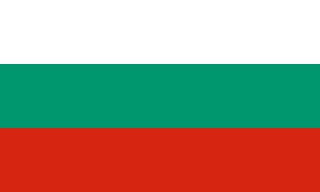

Employer of Record Guide in Bulgaria
Bulgaria's growing tech sector and competitive talent costs make it an attractive destination for global expansion, but navigating local employment laws requires careful attention to detail. Our comprehensive guide breaks down everything you need to know to hire compliantly and build your team with confidence in this dynamic EU market.
Capital City
Currency
Languages
Population size
Services available in this country:

Key stats and facts
From Sofia's thriving tech hub to Bulgaria's flat 10% tax rate, the country offers compelling advantages for international employers. Understanding the local talent landscape and economic fundamentals is your first step toward successful expansion.
Major economic hubs
Skills in demand
Currency
Language
GDP per Capita
Standard Tax Rate
Your EOR guide in Bulgaria
Bulgarian employment law balances worker protections with business flexibility, but the details matter when it comes to payroll, benefits, and compliance. This practical guide walks you through the essential requirements—from minimum wage rules to holiday entitlements—so you can focus on what matters most: building great teams.
Minimum Wage
The national minimum wage in Bulgaria is 760 BGN per month (approximately 4.38 BGN per hour), effective January 1, 2025. This applies to all employees across the country, with no regional variations.
Payroll Cycle
- Monthly: Most common payment frequency in Bulgaria
- Bi-weekly: Less common but legally permitted
- Weekly: Rare, typically used for temporary or seasonal work
Note: Employers must pay salaries by the 10th day of the following month unless otherwise specified in the employment contract.
Individual Income Tax
Bulgaria operates a flat income tax system:
| Income Type | Tax Rate |
|---|---|
| Employment Income | 10% |
| Dividend Income | 5% |
| Capital Gains | 10% |
Tax Residency: Individuals who spend more than 183 days in Bulgaria during a calendar year, or have their centre of vital interests in Bulgaria, are considered tax residents and must pay Bulgarian income tax on their worldwide income.
Employer Payroll Contributions
Bulgarian employers must make significant social security contributions on behalf of their employees. These contributions fund pensions, healthcare, unemployment benefits, and other social programs.
| Contribution Type | Employer Rate | Employee Rate | Total Rate |
|---|---|---|---|
| Pension Fund (General) | 9.9% | 7.1% | 17.0% |
| Pension Fund (Professional) | 0.4% | 0.8% | 1.2% |
| Pension Fund (Supplementary) | 0% | 1.2% | 1.2% |
| Unemployment | 1.0% | 1.0% | 2.0% |
| Health Insurance | 3.5% | 3.2% | 6.7% |
| Work Accidents | 0.4% - 1.1% | 0% | 0.4% - 1.1% |
| Total Employer Cost | ~15.2% - 15.9% | ~13.3% | ~28.5% - 29.2% |
Note: Professional pension contributions apply to specific occupations with hazardous working conditions. Work accident rates vary by industry risk classification.
Working Hours
The standard working week in Bulgaria is 40 hours over 5 days (8 hours per day, Monday through Friday). The Labour Code establishes maximum working time limits:
- Daily maximum: 8 hours (can extend to 10 hours with proper rest periods)
- Weekly maximum: 48 hours (including overtime)
- Rest periods: Minimum 30 minutes for shifts over 6 hours
Certain categories of employees—such as senior managers, autonomous professionals, and workers in specific industries—may have different working time arrangements as defined in their contracts.
Overtime Pay
- Overtime rate: 1.5× the regular hourly wage for work beyond standard hours
- Maximum overtime: 150 hours per year, 30 hours per month
- Weekend work: 1.75× regular rate for work on weekends and holidays
- Night work: Additional 20% premium for work between 22:00 and 06:00
- Compensatory time: Employees may receive time off instead of overtime pay if agreed in writing
Bonus Payments
While not legally mandated, many Bulgarian employers provide:
- 13th month salary: Common year-end bonus equivalent to one month's salary
- Performance bonuses: Merit-based additional compensation
- Holiday bonuses: Payments around major holidays
Contractually promised bonuses become legal obligations and must be factored into termination calculations.
Full-Time vs. Part-Time
- Full-time: Standard 40-hour work week
- Part-time: Less than 40 hours per week, with proportional benefits and protections
- Fixed-term contracts: Maximum 3 years (including renewals), after which they automatically become permanent
Annual Leave (Vacation)
- Minimum entitlement: 20 working days per year
- Enhanced entitlement:
- University graduates: 25 working days
- Employees under 18: 26 working days
- Employees in hazardous conditions: Up to 35 working days
- Accrual: Earned monthly (1/12 of annual entitlement)
- Payout: Must be paid at termination if unused
- Timing: Can be taken after 6 months of employment
Sick Leave
- Duration: Up to 240 days per year for the same illness
- Compensation:
- Days 1-3: Unpaid (employer may choose to pay)
- Days 4-90: 80% of average daily wage (paid by Social Security)
- Days 91-240: 60% of average daily wage
- Medical certification: Required from day 4 onwards
- Pregnancy-related illness: 100% compensation from day 1
Maternity Leave
- Duration: 410 days total
- 45 days before birth (mandatory)
- 365 days after birth
- Compensation: 90% of average daily wage for first 320 days, minimum wage thereafter
- Job protection: Position guaranteed upon return
- Flexibility: Can be shared partially with father after 6 months
Paternity Leave
- Duration: 15 days within 2 months of birth
- Compensation: 90% of average daily wage
- Additional: Can take part of maternity leave after 6 months
Parental Leave
- Duration: Until child reaches 2 years (in addition to maternity leave)
- Compensation: Monthly allowance (varies by family income)
- Job protection: Position or equivalent guaranteed upon return
Other Statutory Leave
- Marriage leave: 3 paid days
- Bereavement leave: 2 paid days for immediate family
- Blood donation: 1 paid day per donation
- Military service: Unpaid leave as required
- Study leave: For employees pursuing education (conditions apply)
Summary
| Leave Type | Duration | Compensation | Funding Source |
|---|---|---|---|
| Annual Leave | 20-35 days/year | 100% | Employer |
| Sick Leave | Up to 240 days | 0-80% | Social Security |
| Maternity Leave | 410 days | 90%/minimum wage | Social Security |
| Paternity Leave | 15 days | 90% | Social Security |
| Marriage Leave | 3 days | 100% | Employer |
| Bereavement Leave | 2 days | 100% | Employer |
Termination Categories
Termination by Employer:
- With notice: Standard termination requiring notice period and potential severance
- Without notice: For serious misconduct or breach of duties
- Redundancy: Due to economic, technological, or organisational changes
Termination by Employee:
- With notice: Standard resignation with required notice period
- Without notice: In cases of employer breach or unsafe working conditions
Notice Period Requirements
Notice periods depend on employment duration and position level:
| Length of Employment | Notice Period |
|---|---|
| Up to 6 months | 30 days |
| 6 months to 3 years | 30 days |
| 3 to 10 years | 60 days |
| Over 10 years | 90 days |
Management positions may require longer notice periods as specified in their contracts.
Severance Pay
Redundancy severance is mandatory:
- 1 month's salary per year of service
- Minimum: 2 months' salary
- Maximum: 6 months' salary
Other termination types generally do not require severance unless specified in the employment contract.
Probationary Periods
- Standard period: Up to 6 months for most positions
- Management roles: Up to 12 months
- During probation: Either party can terminate with 3 days' notice
- No severance: Required during probationary period
Final Pay Requirements
Employers must provide final payment within 7 days of termination, including:
- Outstanding salary
- Unused annual leave
- Any contractual bonuses or benefits
- Severance pay (if applicable)
Legal Protections
Employees cannot be terminated for:
- Pregnancy or maternity leave
- Trade union membership or activities
- Filing complaints about working conditions
- Discrimination based on protected characteristics
- Taking legally entitled leave
Violations can result in reinstatement orders and compensation awards.
National Public Holidays (2025)
| Holiday | Date | Notes |
|---|---|---|
| New Year's Day | January 1 | |
| Liberation Day | March 3 | National Day |
| Orthodox Easter | April 20 | Variable date |
| Easter Monday | April 21 | Variable date |
| Labour Day | May 1 | |
| St. George's Day | May 6 | Bulgarian Army Day |
| Education Day | May 24 | Saints Cyril and Methodius Day |
| Unification Day | September 6 | |
| Independence Day | September 22 | |
| National Revival Day | November 1 | |
| Christmas Eve | December 24 | |
| Christmas Day | December 25 | |
| Boxing Day | December 26 |
Holiday Pay Rules
Eligibility: All employees are entitled to paid public holidays regardless of tenure.
Payment:
- Working on holidays: 1.75× regular hourly rate plus a substitute day off
- Holiday falling on weekend: Substitute weekday off provided
- Part-time employees: Proportional holiday pay based on scheduled hours
Religious Observances
Bulgaria recognises Orthodox Christian holidays as national holidays. Employees of other faiths may request unpaid leave for their religious observances, which employers should reasonably accommodate.
Required Documentation
Employment Contract Elements:
- Job title and detailed job description
- Salary and payment terms
- Working hours and location
- Probationary period (if applicable)
- Notice periods for termination
- Annual leave entitlement
- Confidentiality and IP clauses
Employee Documentation:
- Identity documents: Bulgarian ID card or passport
- Tax number: Personal tax identification number
- Social security number: For contribution purposes
- Bank account details: For salary payments
- Educational certificates: If required for the position
- Work permits: For non-EU citizens
Work Authorization
EU/EEA citizens: Can work freely without permits Non-EU citizens: Require work permits and residence permits before starting employment Permit process: Can take 2-3 months, must be initiated before employment begins
Language Requirements
- Official language: Bulgarian for all official documents and contracts
- Workplace language: While many international companies operate in English, employment contracts must be available in Bulgarian
- Translation requirements: Foreign documents may need certified Bulgarian translations
Background Checks
Permitted checks:
- Criminal background (for relevant positions)
- Employment history verification
- Educational qualification verification
- Professional licence verification
Restrictions: Must be job-relevant and conducted with employee consent. Personal data protection laws apply.
Data Protection Compliance
Bulgaria follows GDPR requirements:
- Employee consent required for data processing
- Clear privacy policies must be provided
- Data retention and deletion policies required
- Cross-border data transfer restrictions apply
Onboarding Timeline
| Step | Timeline |
|---|---|
| Job offer accepted | Day 0 |
| Work permit application (if needed) | Day 1-60 |
| Employment contract signed | Day 1-3 |
| Registration with authorities | Day 1-7 |
| Social security registration | Day 1-7 |
| Tax registration | Day 1-7 |
| Payroll setup | Day 7-10 |
| Benefits enrolment | Day 10-14 |
What the EOR Handles
Borderless AI manages:
- Employment contract preparation and compliance
- Government registrations and filings
- Payroll setup and processing
- Tax and social security compliance
- Benefits administration
- Local legal representation
Worker Classification
Bulgarian law strictly distinguishes between employees and independent contractors:
Employees:
- Work under employer direction and control
- Use employer-provided tools and equipment
- Receive regular salary with tax and social security deductions
- Entitled to all labour law protections
Independent Contractors:
- Operate autonomously with minimal supervision
- Use own tools and bear business risks
- Invoice for services and handle own taxes
- Not covered by employment protections
Misclassification risks: Can result in significant penalties, back-payment of social contributions, and legal liability.
Trade Unions and Collective Bargaining
- Union membership: Voluntary, with strong legal protections for union activities
- Collective agreements: Can override individual contract terms in favour of employees
- Sector agreements: Apply to entire industries (construction, mining, etc.)
- Strike rights: Protected under Bulgarian law with specific procedural requirements
Anti-Discrimination Laws
Bulgarian employment law prohibits discrimination based on:
- Gender, age, race, ethnicity
- Religion or political beliefs
- Disability or health status
- Sexual orientation
- Trade union membership
- Pregnancy or family status
Enforcement: Through Labour Inspectorate and courts, with potential for significant damages and reinstatement orders.
Cultural Workplace Norms
Communication style: Direct but respectful, with emphasis on hierarchy and formal address Work-life balance: Generally respected, with limited expectation of after-hours availability Decision-making: Often hierarchical, with senior management making final decisions Relationship building: Important for business success, often involving social interaction outside work
Remote Work Considerations
Legal framework: Remote work is legally recognised and regulated Equipment: Employers typically responsible for providing necessary work tools Health and safety: Employer obligations extend to home office environments Working time: Standard labour law protections apply to remote workers Cross-border: Additional tax and social security considerations for employees working from other countries
Tax implications: Remote workers may need to consider tax residency rules if working from multiple countries.
Built-in benefits packages for Bulgaria
When the world is your competition, it pays to incentivize new hires and existing alike. Borderless AI benefits packages typically inlucde:

Medical Insurance

Dental Insurance

Retirement Contribution

Life Insurance

Vision Insurance
Explore other countries

Unlock global hiring potential
Simplify your payroll and hiring processes today.








